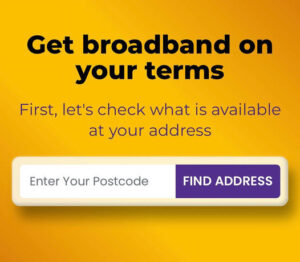A Beginner’s Guide to Internet Terms and Jargon

Making Sense of Your Internet Connection and Internet terms
Confused by all the technical jargon and internet terms that comes with getting an internet connection? You’re not alone. When you shop for broadband or try to understand your provider’s offer, terms like Mbps, latency, and bandwidth can be confusing.
The good news is that these terms aren’t as complicated as they might sound. Once you break them down, they are easy to understand. Knowing this can help you choose the best internet service for your needs.
Let’s explore the most common internet terms, what they mean, and why they matter to your online experience.
What is internet term Mbps and Why Should You Care?
Mbps stands for megabits per second and it’s the standard unit for measuring internet speed. Essentially, it tells you how quickly your data travels between your devices and the internet.
To give you an idea:
- For basic web browser or checking emails, access to the internet connection speed of around 10 Mbps is sufficient.
- Streaming HD videos and social networking usually needs 25-50 Mbps.
- Online gaming or 4K streaming? You’re looking at 50 Mbps and above.
- Large households or heavy internet use? Aim for speeds over 100 Mbps.
So, why does internet terms Mbps matter? Because the right speed can make the difference between smooth browsing or buffering frustration.
Companies like Broadband Freedom provide flexible packages. Their internet connection speeds range from 40Mbps to ultra-fast 944Mbps. This gives you the freedom to choose what fits your needs.
Unpacking Bandwidth vs Speed
Here’s a term many people mix up: bandwidth. While people often use it interchangeably with speed, bandwidth actually refers to the size of your “internet pipe.” Think of it as a motorway—the more lanes you have, the more data can flow through at once.
A lack of bandwidth does not always mean slow speed. It means the connection may have trouble when many users or devices use it at once. If your whole family is streaming, gaming, or video calling at the same time, you need higher bandwidth. This helps avoid interruptions.
Wired vs Wireless Network: What You Need to Know
You’ve probably heard terms like Ethernet or Wi-Fi thrown around. These refer to the way your device connects to the internet.
- Ethernet (Wired Connection): This is a direct connection to your router using a cable. Wired connections are usually faster and more stable. This makes them great for gaming, working from home, or streaming on a main device.
- Wi-Fi (Wireless Connection): This is the wireless option that allows devices to connect to the internet without cables. It’s more flexible for mobile devices, cloud computing or setups where running cables isn’t practical.
Pro tip: If you have a lot of devices connected, upgrading your router can improve wireless performance. Providers like Broadband Freedom include free routers with their packages to ensure smooth multiple-device usage.
Understanding Ping and Latency
If you’re into online gaming or make frequent video calls, ping and latency are terms you should get familiar with.
- Ping: This measures how fast your internet responds to a request. This can be loading a webpage or sending a gaming command.
- Latency: This is essentially the delay time between sending and receiving data. High latency can cause lag—something no gamer wants.
Good broadband service aims for low ping and low latency to avoid those frustrating delays. Most fast broadband providers, like Broadband Freedom, help gamers. They offer plans designed for low latency and high performance internet terms.
Fibre vs ADSL: Which is Right for You?
Your broadband internet connection type significantly affects your internet performance. Two of the most common types are fibre broadband and ADSL:
- Fibre Broadband: This uses fibre-optic cables to deliver faster and more reliable speeds. Perfect for streaming, gaming, or households with multiple devices.
- ADSL: A type of broadband delivered over a traditional telephone line. It’s cheaper but generally slower and less reliable than fibre options.
Fibre broadband is quickly becoming the standard for modern, tech-savvy households. It’s no surprise that it supports companies like Broadband Freedom. They focus on providing flexible fibre broadband plans.
Data Caps: What Are They, Really?
Ever heard of data caps and wondered what they mean? Some providers set a limit in your internet terms, on the amount of data you can use each month. Once you hit the cap, the system might throttle your speeds (slow them down) or you might incur extra charges.
Luckily, many UK providers now offer unlimited data, so you don’t have to worry about exceeding any limits. This is a great way to ensure you can use your internet connection as much as you like without surprises on your bill.
The Importance of Upload Speed
Most people focus on download speeds because they dictate how quickly you can stream, browse, or download files. But let’s not forget about upload speed—the rate at which your device sends data to the internet.
Upload speed becomes especially important for:
- Video conferencing (Zoom or Teams calls).
- Uploading electronic mail, photos or videos to social media.
- Gamers who stream sessions live online.
Fast upload speeds make these activities easy. If you do any of these often, it’s worth thinking about.
Lagging Internet? Here’s Why
We’ve all been there: slow internet seems to take forever to load something. The truth is, laggy internet can boil down to several factors:
- Outdated equipment: Your router or modem might not be keeping up with modern usage needs.
- Too many devices: This can overload the wi fi network connection, especially during peak times.
- Connection type: Remember that ADSL connections will often struggle to keep pace compared to fibre.
Switching to a fibre broadband provider is one of the easiest ways to avoid these issues. With plans designed for households with multiple devices, companies like Broadband Freedom focus on high-speed flexibility.
Final Thoughts on Internet Jargon
Knowing these key internet terms can save you from feeling lost when sorting out your broadband connection. It gives you the knowledge to compare providers, evaluate plans, and select the best service for your home. A quality provider puts control in your hands, offering a range of options to suit both your budget and technical needs.
No matter who is at home, everyone needs a good internet connection. This includes fans of streaming, gamers, and people working remotely. A good broadband plan helps keep everyone connected easily.
Remember that providers like Broadband Freedom create packages for all kinds of users. They cater to casual browsers and hardcore gamers. They also make internet jargon easier to understand.



